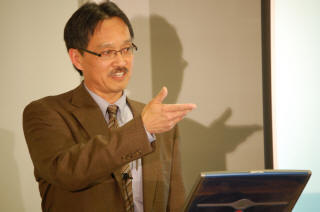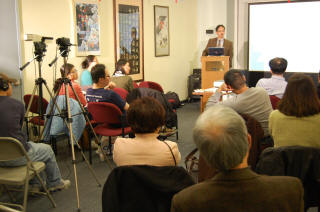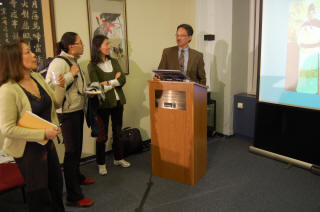
The financial and cultural prominence of Chinese populations outside of the mainland of China has heightened because of the recent phenomenal economic growth of the People’s Republic of China. With settlements in disparate regions of the world, overseas Chinese have been linked to those in the mainland both culturally as well as financially. The underpinning of the linkages is the notion of “diaspora” which is liberally applied to all overseas Chinese communities.
Is there a true Chinese diaspora in the classic definition of the term? What are the elements of a diaspora? How has the term evolved? How is it used currently. Is the term appropriate for Chinese communities? How useful is the diaspora framework in describing population movements and ethnic identities?

The talk will introduce the classic notion of “diaspora” and examine its current usage in the social sciences. We will explore the history of Chinese overseas migrations and settlement patterns. Lastly, we will assess the political and economic fallout from the term “diaspora” or diasporic elements when applied to Chinese Americans and other overseas Chinese communities.
My thesis is that many political stereotypes and assumptions regarding Chinese Americans come from the notion that there is a Chinese diaspora. That is, that every Chinese regardless of nationality, birthplace, language and culture, are tied to other Chinese populations resulting in stereotyping and assumptions of a monolithic Chinese political worldview and economic network.
Thus, the diaspora framework is useful in talking about the “perpetual foreigner” stereotype as well as in examining why Wen Ho Lee was accused of spying. It is valuable in evaluating the place of Asian Americans in the US political structure and social conscience.

Online Notes
Video Not Available at Request of Speaker

